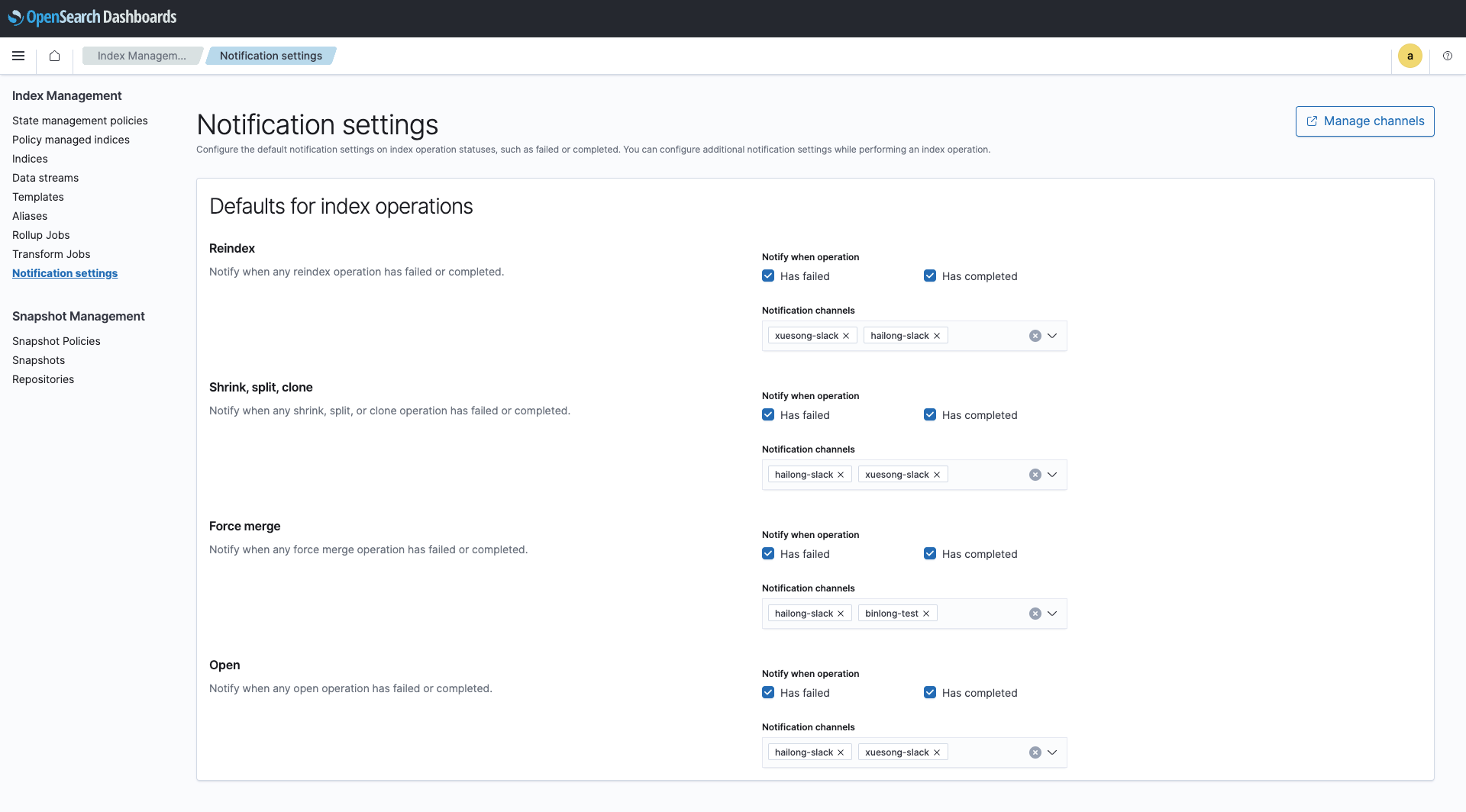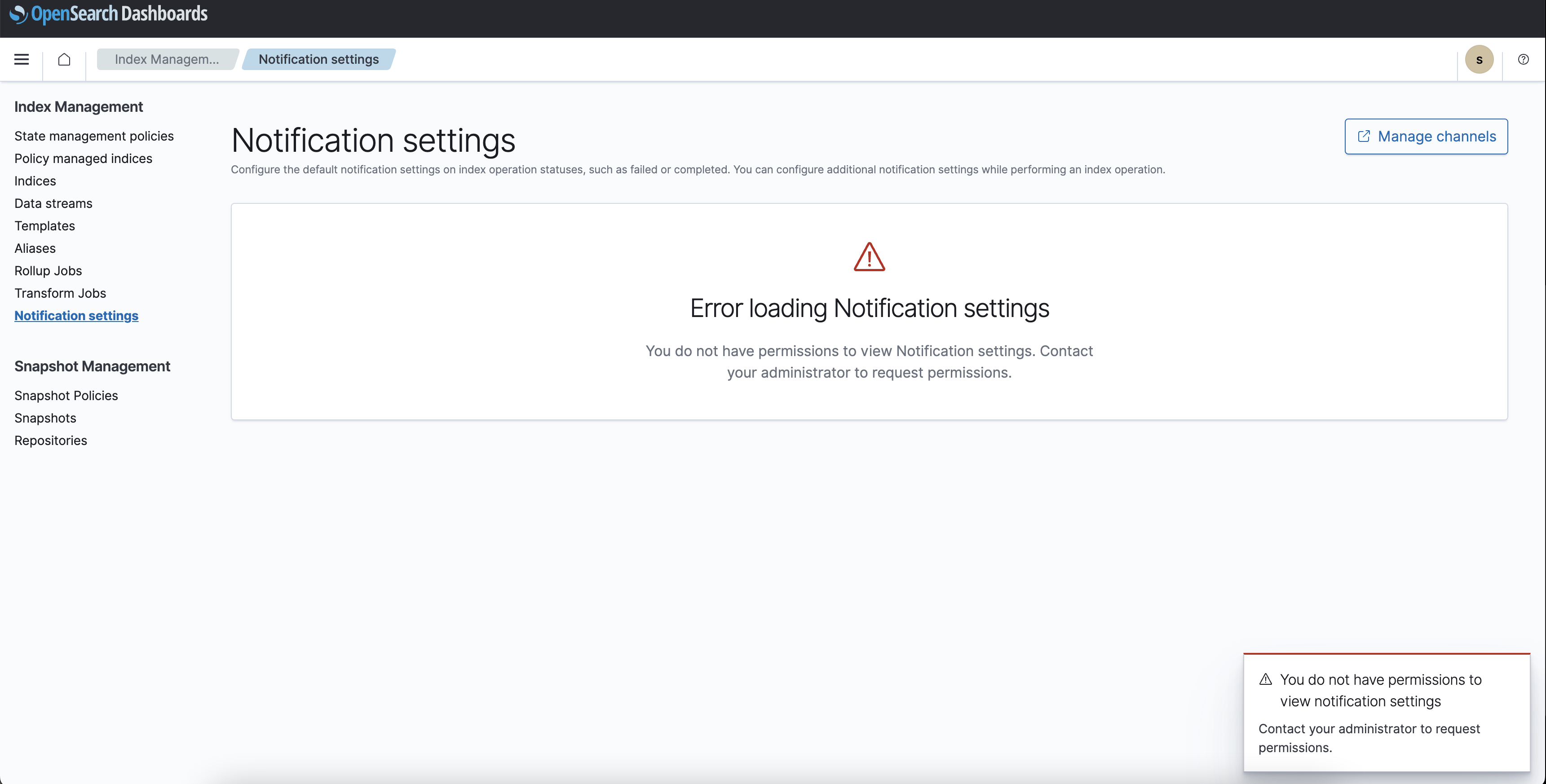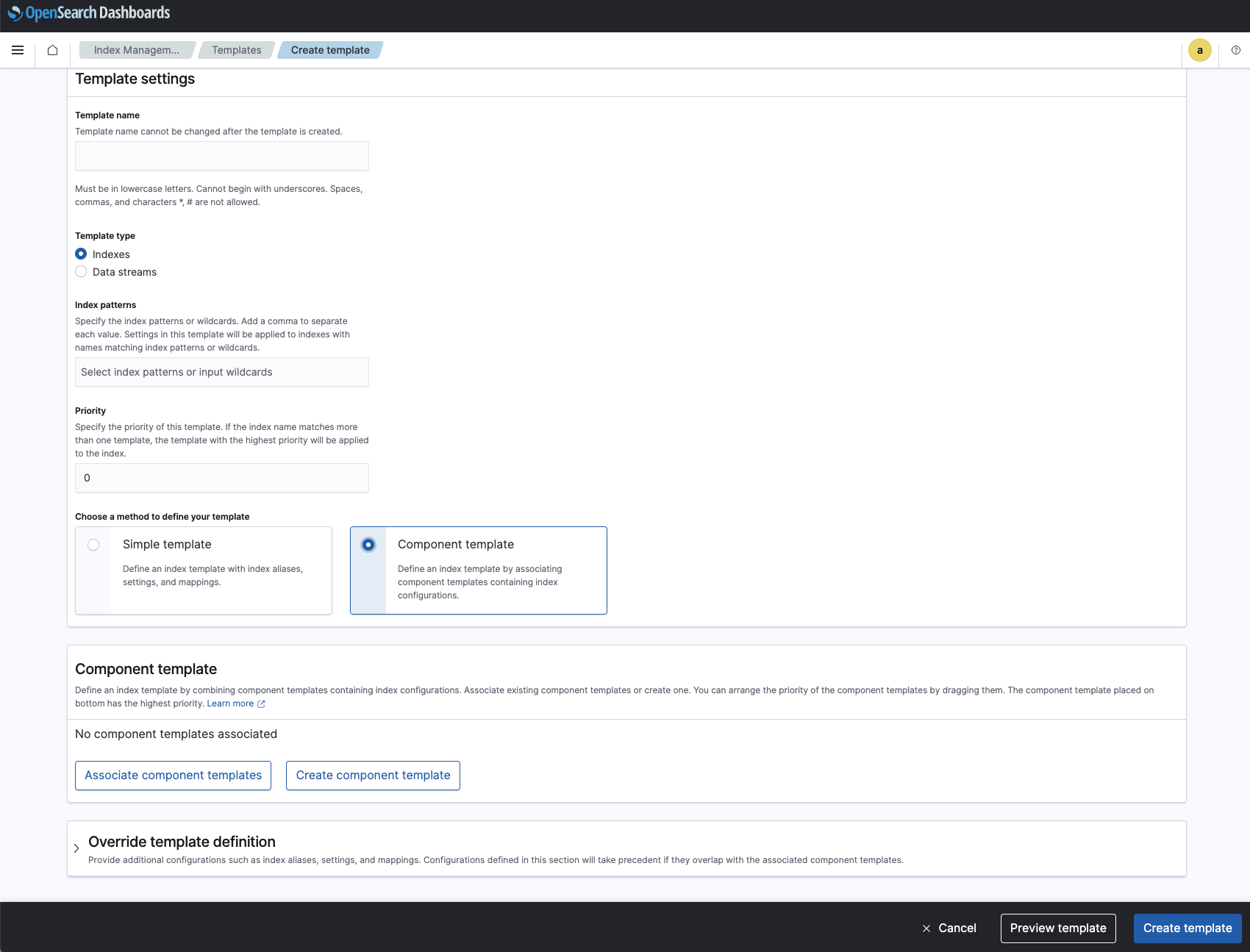New for OpenSearch Dashboards: Long-running operation notifications and component templates
OpenSearch Dashboards now provides two additional UI elements to simplify index management: notifications for long-running operations and component templates. With long-running operation notification, you can subscribe to be notified of a specific task or type of task through any notification channel supported by the Notification plugin. With component templates, you can create a single index pattern that matches multiple indexes. Using component templates together with index templates provides a powerful tool for managing large volumes of data.
Long-running operation notifications
In the past, when you ran a long-running operation, you needed to wait for it to complete, constantly refreshing to update the status. This became challenging because a task could take hours to finish. To alleviate the problem, OpenSearch introduced asynchronous tasks for reindex operations, making it possible for a time-consuming job to run in the background. However, admins still had to check the task status from time to time to ensure that the task had progressed to its final state. Additionally, operations like shrink lacked the basic ability to run asynchronously.
Transforming long-running operations into asynchronous tasks
For large indexes, the shrink, split, clone, open, and force_merge operations are known to need roughly 30 minutes to finish. If you want to run them asynchronously, you can transform these operations into tasks by setting the wait_for_completion query parameter to false:
POST /my-old-index/_shrink/my-new-index?wait_for_completion=false
{
"settings": {
"index.number_of_replicas": 4,
"index.number_of_shards": 3
},
"aliases":{
"new-index-alias": {}
}
}
The preceding query returns a task ID that you can use to monitor the operation status.
Getting notified when asynchronous tasks finish or fail
To support notifications for long-running operations, we integrated tasks with notification channels. To be notified when a task finishes or fails, you can configure notification settings, as shown in the following image.

For detailed instructions on configuring notifications, see Notification settings.
Notifying additional users of an indexing operation
Sometimes you may want to notify additional users of the status of a specific operation, such as the reindexing of a production index. Index management provides the capability to amend default notifications with additional notifications for an individual operation, as shown in the following image.

For more information, see Configuring notification settings for an individual operation.
Configuring notifications through the API
You can use the lron API endpoint to configure notification settings for a task. For example, the following query sets up notifications when a reindex task fails:
POST /_plugins/_im/lron
{
"lron_config": {
"task_id":"dQlcQ0hQS2mwF-AQ7icCMw:12354",
"action_name":"indices:data/write/reindex",
"lron_condition": {
"success": false,
"failure": true
},
"channels":[
{"id":"channel1"},
{"id":"channel2"}
]
}
}
The lron API lets you create, retrieve, update, and delete notification settings. To learn more about these operations, see Notification settings.
Setting up fine-grained access control with notification permissions
To limit notification setup access to certain users, notifications are integrated with the Security plugin, which provides the following fine-grained permissions:
cluster:admin/opensearch/controlcenter/lron/get: The user has permission toviewthe notification configurations for long-running operations.cluster:admin/opensearch/controlcenter/lron/write: The user has permission toadd or updatethe notification configurations for long-running operations.cluster:admin/opensearch/controlcenter/lron/delete: The user has permission todeletethe notification configurations for long-running operations.
If users lack permissions to view notification settings, they are prompted to request permissions, as shown in the following image.

Component templates
Component templates let you create a single index pattern that matches multiple indexes. You can combine multiple component templates to create an index template.
Creating component templates
When you create index templates through the API, it may be difficult to determine what the index template will be like after merging all the associated component templates with their own configurations. Now when you create or update an index template through the UI, you can preview the template in OpenSearch Dashboards, as shown in the following image.

For detailed instructions on creating component templates, see Component templates.
Managing index templates with the aggregated index template view
Using the API, it may be difficult to determine how many index templates are using a single component template. Now OpenSearch Dashboards provides an aggregated view of all index templates associated with a particular component template so you can easily manage them, as shown in the following image.

Next steps
We are exploring new ways to use the notifications framework for other asynchronous task scenarios that require timely notifications. If you have any feedback or suggestions, join the discussion on the OpenSearch forum.




